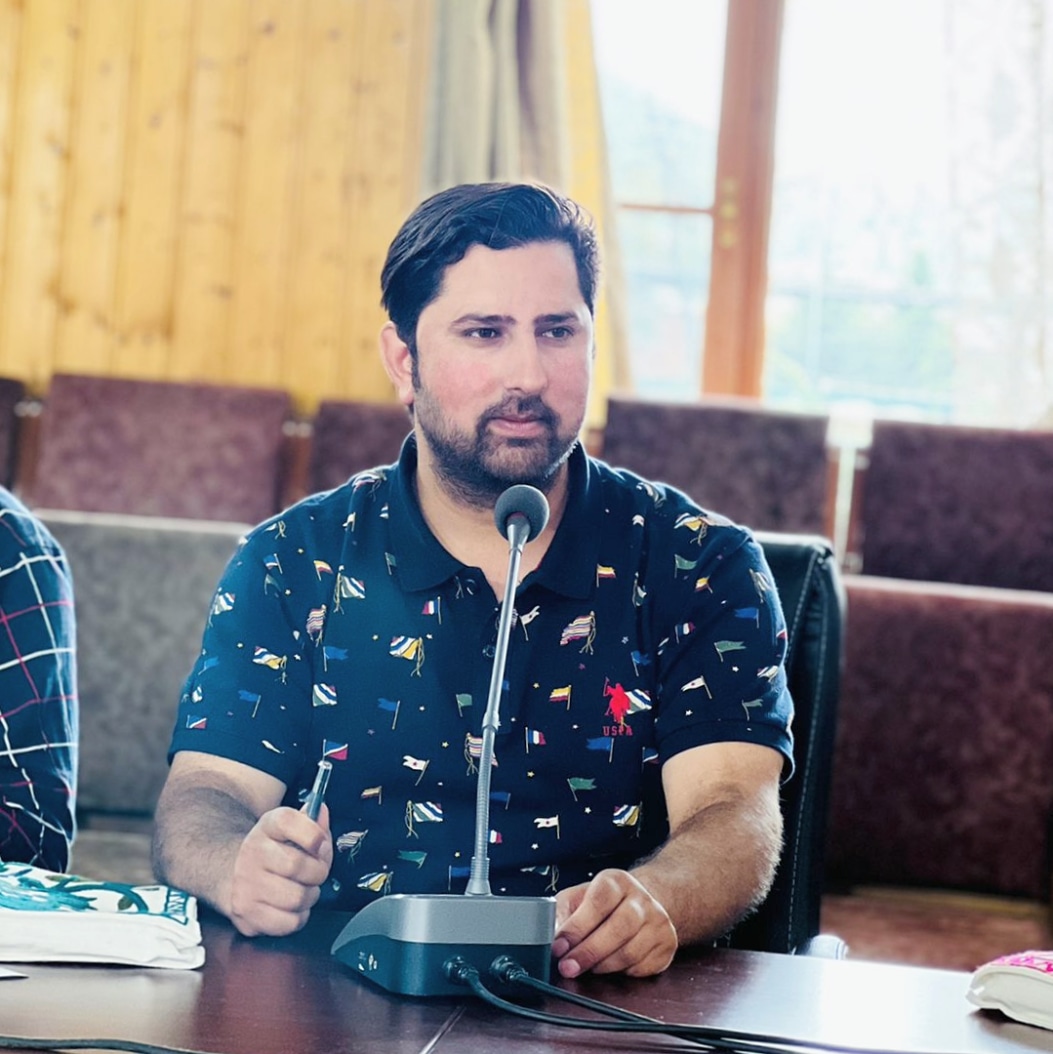Lost Tribe of ‘Nayidd’ Battling Stigma for Business Survival!
SUHAIL KHAN
BARAMULLA, Jun 2: In the bustling streets of Baramulla, a community of local barbers, known as the ‘Hajam community,’ is fighting to keep their tradition alive.
Despite their dedication and passion for their generational occupation, these barbers find themselves facing numerous challenges and societal stigma that threaten their livelihood.
As the non-local barbers gain popularity, the traditional barbers are struggling to attract customers and sustain their business, resulting in financial hardships.
For Hilal Hajam and Bashir Hajam, two barbers at Azad Gunj area of Baramulla, their day starts early as they set up their business in a small wooden shop.
With a sense of pride, they arrange their wooden chairs and mirrors, preparing for a day of shaving and trimming hair. However, the respect and recognition they receive from the community do not match their dedication.
The Hajam community, to which they belong, is considered a lowly tribe, leading to discrimination and reluctance from people to avail themselves of their services.
“The customers look at us as if we are untouchables. They call Nayed while as a non local is a hair stylist,” said Hilal.
Hilal said that the primary obstacle faced by these barbers is the social stigma attached to their profession.
“Many perceive our services as outdated and unhygienic, opting instead for modern, sanitized barber shops,” he added.
Bashir said that the stigma limits their customer base, with only individuals from lower economic strata and those from far-flung areas seeking their services.
Despite charging affordable prices of Rs 20 for a haircut and Rs 50 for a haircut and shave, the meager income earned makes it incredibly challenging for them to make a living.
The decline of the local barbers’ business can be attributed to several factors.
One significant factor is their inability to keep up with the changing trends and modern means of hair cutting and styling.
Unlike non local barber shops that embrace the latest shaving creams, head massagers, and advanced appliances, local barbers lack the financial means to adopt such modern techniques.
Consequently, their customer base eroded further, leaving them to cater to an insignificant section of society.
The rise of non-local barbers also had a detrimental impact on local barbers in Kashmir.
Irshad Ahmad Hajam son of Bashir Ahmad Hajam, who has done his graduation opted out of the profession.
“These non-local barbers brought unique styling techniques that appealed to customers, surpassing the offerings of the local barbers,” Irshad told Kashmir Despatch.
“Their growing popularity further marginalized the local barbers, pushing them into a corner and exacerbating their struggles to sustain their business.”
Irshad said that despite being people friendly and cheaper, local barbers aren’t receiving any customers and the respect they deserve.
“At a salon where the barbers from outside use the same cream, razor and lotion, the customer pays 400-500 rupees happily but when it comes to ‘Nayed Dukan’ of some local barber, people don’t even pay 50 rupees happily. I don’t think there is any difference in techniques but the mindset of customers,” he added.
While the challenges faced by the local barber community are numerous, their dedication to preserving their generational occupation remains unwavering.
Hilal Hajam’s passion for his family’s traditional business is extraordinary, despite its limited financial returns.
The heartwarming sight of these barbers catering to their customers’ needs serves as a poignant reminder of their commitment to their craft.
It is imperative for society to recognize and appreciate the cultural significance and heritage associated with the street and local barbers of Kashmir.
Efforts should be made to eliminate the stigma surrounding their profession, acknowledging their contributions to the community and preserving this unique tradition.
Providing support and resources to the local barbers, such as training programs, modern tools, and financial assistance, can help revitalize their businesses and enable them to compete with hi end salons.
The story of Kashmir’s barbers is not just about haircuts and shaves; it is about resilience, tradition, and the struggle to sustain a way of life in the face of adversity.
By embracing and supporting these barbers, we can ensure that this “lost tribe” thrives and continues to shape the cultural fabric of Kashmir for generations to come.

Suhail Khan is a filmmaker, content writer, and freelance journalist.